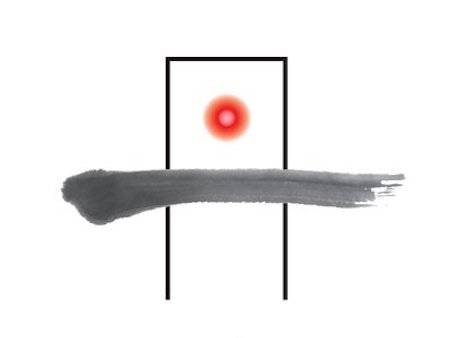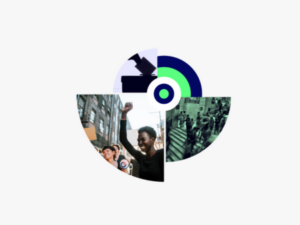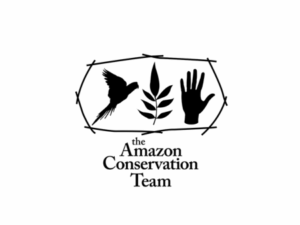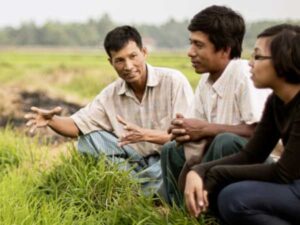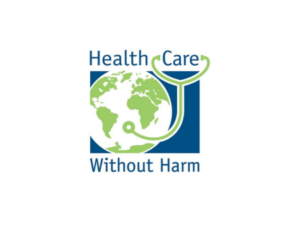The Yidan Prize is an annual education award that celebrates individuals or teams that have contributed to education research and development.
Michelle Zhang of Yidan Prize Foundation spoke with Jessica Kantor on April 13, 2023. Click here to read the full conversation with insights highlighted.
Jessica Kantor: Can you please introduce yourself, your role in your organization, and the problem that your work addresses?
Michelle Zhang: My name is Michelle, and I work for the Yidan Prize Foundation. I’m a program coordinator as well as the UK office representative. I help build the foundation’s presence in the UK, as well as developing partnerships in Europe and other regions.The problems that we are addressing are education, education access, and education quality.
The way we are addressing it is by recognizing innovative ideas and transformative practices around the world, and we champion those through the Yidan Prize. This is the largest education accolade in the world. Every year, we have the Yidan Prize for education in research and the Yidan Prize for education development. By championing these individuals or teams who work in education development or research, we can recognize the practices or the theory they’ve been working on, and share that with the wider world to tell them this is the solution that’s working in this context. We see there’s lots of potential with scaling in other regions as well, so this is the way we are trying to bring a panel of recognized solutions, and spread to the wider world.
Jessica Kantor: What makes your organization’s approach distinctive?
Michelle Zhang: I’d say that there are several aspects that set us apart from other organizations. First of all, we are not like a typical grant making foundation. We champion ideas through the prize, and that means that our prize money, which is 30 million Hong Kong dollars, that’s around $3.9 million USD. Half of that is cash money to the laureates themselves and the other half is a three-year project fund. We are driven by impact, so we don’t want to only champion their past achievements, but also drive innovations for the future. This is the first way I think we’re different from other prize organizations.
Secondly, we recognize individuals or teams, instead of their organizations. People have questioned why we don’t recognize the organization because, obviously, the work that people have done is not completed by one or two people. It’s hard to recognize who is the biggest contributor, but in my perspective, it is important to have a panel, a group of people that’s present just like Nobel Prize laureates, to see that these are the leaders, the innovators, they’re doing really impressive work around the world.
We look at their trajectory, their past achievements, individuals have worked on so many projects, they’ve worked in different organizations, there is something we can learn from there. For example, I’m an aspiring educator and in education policy as well as in a range of education fields. When I look at the laureates, I not only focus on what they’re doing now with their organization, I look at their past achievements and how they’ve come to the stage they are at so far. Where have they been? What challenges have they faced and how have they solved it? In my perspective, by championing these individuals instead of organizations, we can look at the whole history of how their education achievements and work has changed and has shifted because the context they’ve worked in has changed.
Jessica Kantor: When was the foundation founded, and do you know how many awards you’ve given since then?
Michelle Zhang: Our foundation is relatively young, we were founded in 2016. In 2017 we announced our inaugural laureates and held the first Yidan Prize Awards Presentation Ceremony. Every year we give out two awards, one in education research and one in education development. That is 12 prizes. Most of these prizes have been awarded to individuals, whereas in 2020, one prize was awarded to a team of two, so that is 13 people, if I’m counting correctly.
Jessica Kantor: How do you engage with your award recipients? Do they have to apply? Does your organization go out and find possible individuals? How do you engage with them before they receive the award?
Michelle Zhang: We take nominations, people can self-nominate, and they can also be nominated by someone else. The process is pretty straightforward. You just register for a nominator account. You can self-nominate or get someone to nominate you. We ask questions relating to our judging criteria, such as to what extent is your work transformative, innovative, sustainable, and future oriented? You also upload a video of two minutes to explain what you would do with the project fund if you win the prize. We welcome any supplementary documents and supporting letters. It’s a pretty standard nomination process that you expect for a prize.
Jessica Kantor: How are you measuring success?
Michelle Zhang: The foundation’s mission is to create a better world through education. The theory is to do this by recognizing the best ideas and practices, which will accelerate the adoption of these ideas across the world. Our measurement of success depends on, first of all, if we are recognizing the best ideas in a diverse range of geographies and if we have quality nominations and quality prize laureates. Secondly, if we are doing enough to support these laureates’ projects so that their practice is more widely known across the world and if we’re connecting them with other funders, other organizations, and even with systems level change makers such as policy makers, ministries of education, the people we’re also in contact with to help them enter into different markets and scale their practice.
If we help them to adopt these, if we help them to scale in one region, two regions, or if we help them gain access into other contexts, then that’s how we can measure success. I would say that our measurement of success is very flexible and varies a lot, because our prize is not themed in any particular areas of education. We have neuroscience, teacher training, and early childhood development. There’s no one size fits all. Success for different projects and for the different laureates with different needs and their different stages of development look different. Overall, success is if we are able to really help one laureate spread this one thing that they really cared about, and help them grow even further.
Jessica Kantor: Can you share a specific example that illustrates the impact of your work?
Michelle Zhang: Let’s talk about CAMFED, because this is a project that I’m actually working on. CAMFED is also a Skoll awardee, and the co-directors, Lucy and Angeline, are the two prize laureates from CAMFED. Their whole work is about supporting girls’ education in Sub-Saharan Africa and they have been awarded for this commitment to improving access and quality of education for girls in Africa.
With our project funds of 15 million Hong Kong dollars, they are developing a learner guide hub to build on their flagship learner guide program, which is for girls to do two years of volunteering and mentoring at their local secondary schools. Afterwards, they will receive interest free loans to start their business or career and gain a BTech qualification, which is a qualification in the UK and allows them to do more afterwards in their life. They’re developing a hub for this, which is a digital platform that allows learner guides to access materials for their teaching, as well as documenting their journey of being a learner guide, so that these materials are uploaded in time for their qualification. It’s like a filled work assessment criteria. What I love about this hub is it integrates a new technology called Progressive Web Application that takes local contexts into the consideration of the local context, for example the tech limit on bandwidth or limited internet access. And the hub development process itself is very user-centric. Instead of the developers thinking about what’s needed for these learner guides, the whole development process was consulted with the learner guides themselves. They talked about the stories and what they would need in the hub.
The hub just launched this February, and it’s been piloted across five countries: Tanzania, Malawi, Zimbabwe, Zambia, Ghana. It is expected that when this hub is finally released, it will be used by Ellie’s 23,000 learner guides across these five countries, and with these learner guides, they will be able to teach more than a million girls in Africa. This hub would make it easier for them to get the grades and the qualifications they want. They won’t have to walk kilometers into these town centers of internet or computers, they can just do it on their phone. It’s also easier to communicate and onboard these learner guides, so that the whole learner guide program becomes even more sustainable. This is really inspiring for me, because I work very closely with them, and they’re also based in Cambridge where I’m based. Seeing how this hub is being developed, and sitting in those development calls was really inspiring.
Jessica Kantorr: What are some lessons that the foundation learned early on, or even recently, that taught you guys what not to do?
Michelle Zhang: There are so many lessons we’ve learned. One thing we’ve always tried to keep in our mind is we’re partners with our prize laureates, and we take a trust-based approach. That means we’re not limiting what they want to do. We’re not closely monitoring what they’re doing. It’s a trending approach now, but we’ve been practicing this since the very start because our founder and the board has learned that by being a powerful authoritative funder, it’s not like the program team will spend more time reporting to you than actually doing the work. With us, we don’t limit what they use the project funds for and we don’t interfere with their program implementation.
We do receive reports from them, like annual reports, and we help them wherever there is a problem. For example, if because of COVID they need to extend their project. We’re very flexible with that and we’ve learned that this approach works really well. Trust-based philanthropy works well because it gives you trust. Your prize laureates do the best things to make the best use of the money. It’s worked very well and has gained very positive feedback from our prize laureates.
Jessica Kantor: Are you currently facing any challenges or limitations that you haven’t been able to overcome?
Michelle Zhang: As a foundation, we’re hoping to receive many quality nominations. However, one particular obstacle for me as a program coordinator and outreach for the nomination is that sometimes the prize itself is not well known enough to attract as many nominations as we hope to. Although we give out money, we are potentially a funder, it’s not as well known as it could be.
These areas are the regions that have the greatest challenges in education, and are in need of the most innovative solutions, and where these solutions are coming from. It’s this imbalance of need and demand and supply with the actual resources they have to submit a nomination and complete the nomination project. To overcome this, we have been actively reaching out, trying to overcome the language barriers, so we have our nomination guide in five languages: French, Spanish, Portuguese, Chinese, English, to be as inclusive as possible. We host nomination webinars in different languages and, if there are any questions, we’re always there to help. In general, we need to do more and push even harder to reach the local practitioners and researchers there.
Jessica Kantor: How are you working towards advancing systems level change?
Michelle Zhang: We advance systems level change mainly by supporting our laureates program. Our laureates are the ones that actually implement systems level change, because we connect them with different regions and funders and policymakers. Many of our laureates are now working with local governments to change curriculum, to change the assessment criteria, and to change how the teachers are being trained.
For example, Pratham by Rukmini, is working with the government to develop new curriculum and new models that scale in India for early childhood development. Our last year’s laureate, Linda Darling Hammond, proposed a project on scaling her educator preparation lab. They don’t only share learnings and research on how to train educators, but they engage with policymakers, they’re being consulted by policymakers. She was in President Obama’s transition team in 2008 and she has very wide connections with the policymaking side of education in the US. With our project fund, she’ll be able to expand this educator preparation center hub so that more exemplary practices can be shared across the US, and even globally. This is how we’re achieving system change, by helping our laureates to further scale and to work with the governments.
Jessica Kantor: What do you think is most needed from other actors or partners in order to advance that systems level change, too?
Michelle Zhang: I think to have an open mind and understand that all of our futures depend on the young generation. There are so many young people now who are from Africa and Asia, and we need to invest in them. Education is not an expense, it’s an investment. To have an open mind for change, for collaboration, for trust is what we need. Also to have optimism and hope, because I’ve been in contact with lots of nominees and nominators, and sometimes the conversation is likely to slide into the pessimistic side of things that aren’t working. Of course, many education systems in the world are struggling. But these education systems are also full of innovators, educators, and our prize laureates as well, who are proving that there are solutions that scale. Keep the hope, keep optimistic, and be willing to collaborate. In the world of philanthropy, what I’ve learned so far is that everyone is just one or two phone calls away. So collaborate and share, and this is why we’re at the Skoll World Forum.
Jessica Kantor: How do you see the work of the foundation evolving over the next five years?
Michelle Zhang: Over the next five years, I envision it to have a more diverse profile of not only our prize laureates, but also more diverse judging panels, a more diverse advisory board, and more representative board members. I envision that over the next five years, we will be able to build a global community of education leaders so that we can help these prize laureates, or even people who are not the prize laureates but are connected with us, get this information across and flowing. We hope that over the next five years, the Yidan Prize can be recognized and as well known as the Nobel Prize in Education. So that whenever we announce a new laureate, people will tune in and look at what they’ve done, look at their trajectory and think about the new solutions we have as the new laureate is announced.
Jessica Kantor: Thank you so much for sharing these insights with me today.
Click here to read the full conversation with insights highlighted.
Jessica Kantor is an independent journalist specializing in health, human rights, and social impact. Her work can be found in Fast Company, Healthcare Quarterly, The Las Vegas Review-Journal, and others. She is a living kidney donor.
* This interview has been edited and condensed.
Learn about other organizations providing awards in social innovation.

